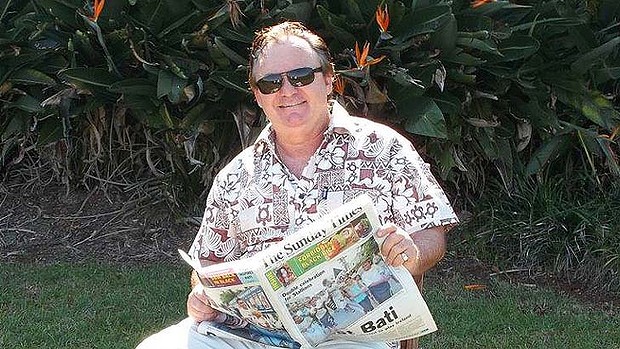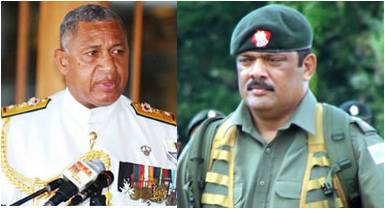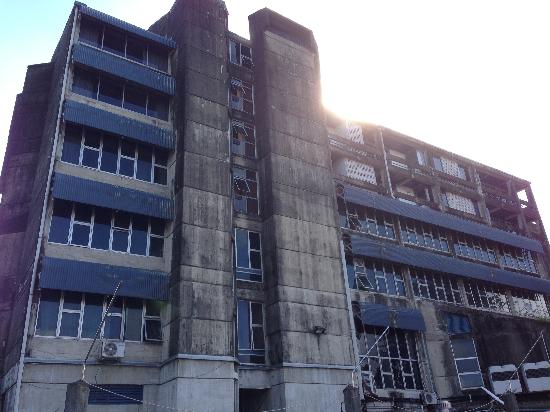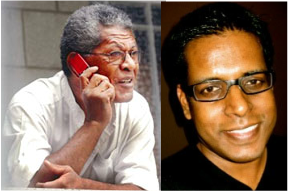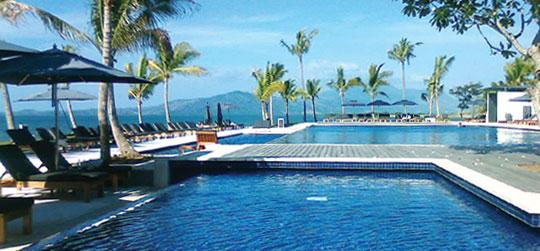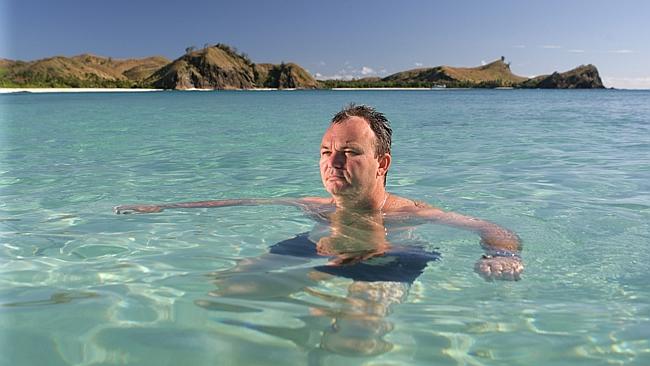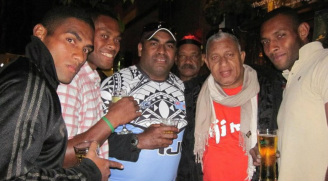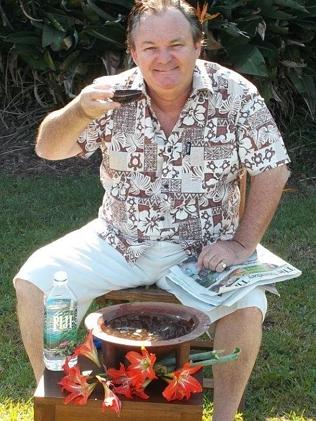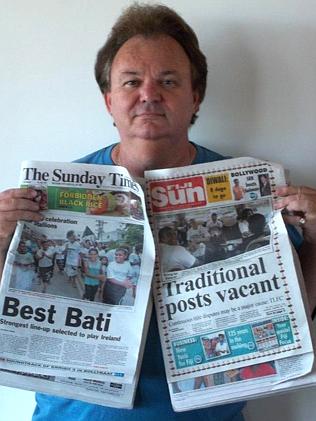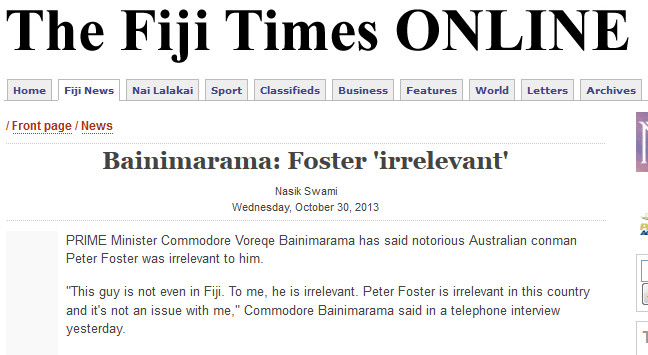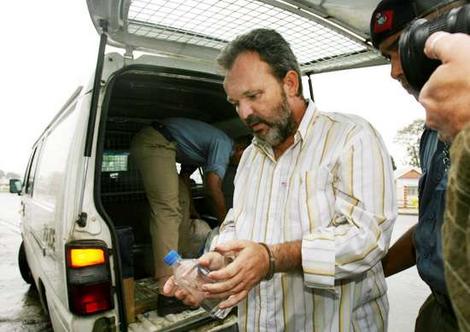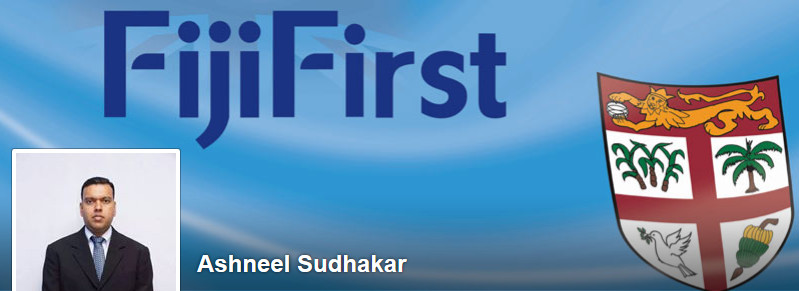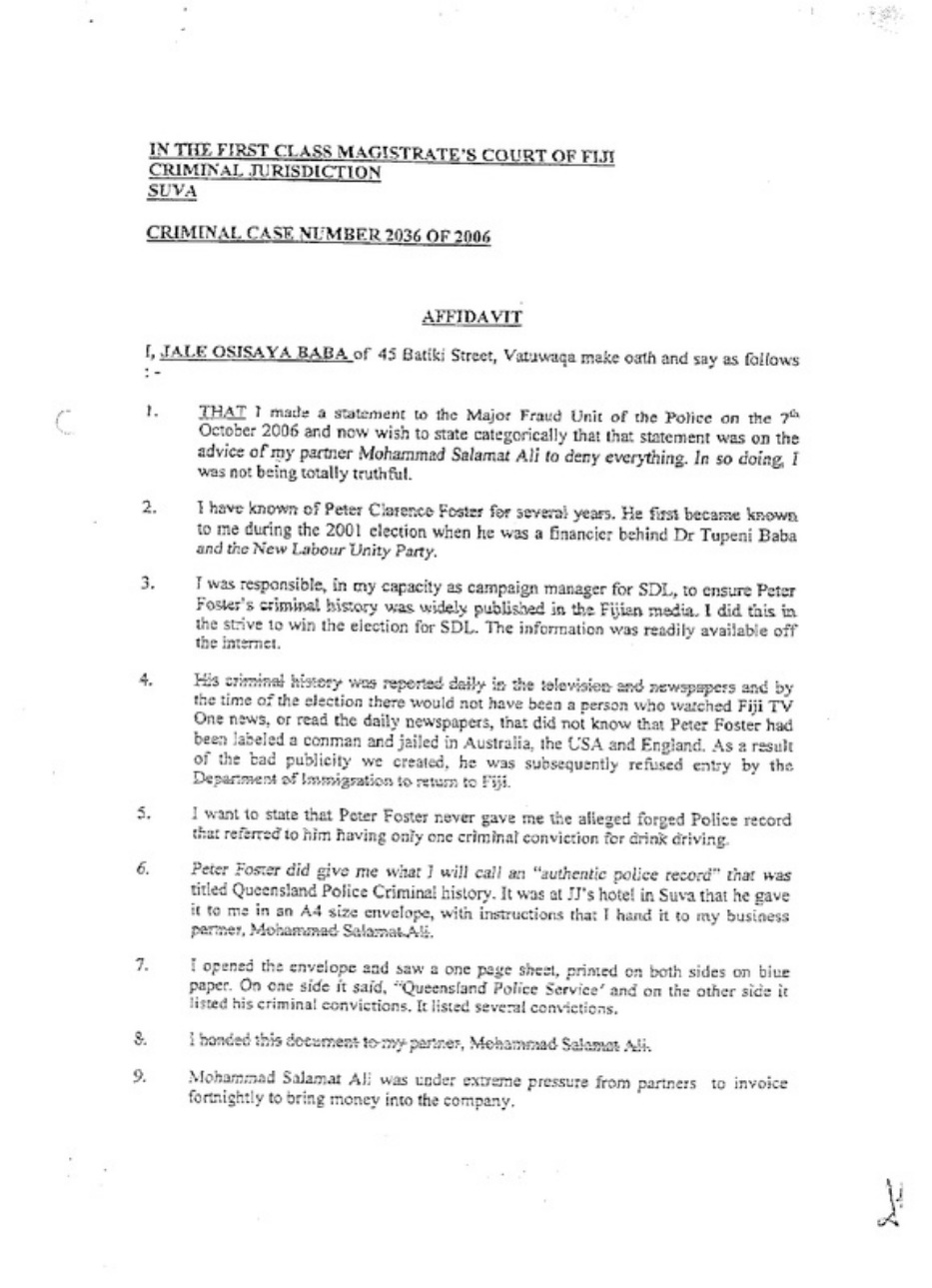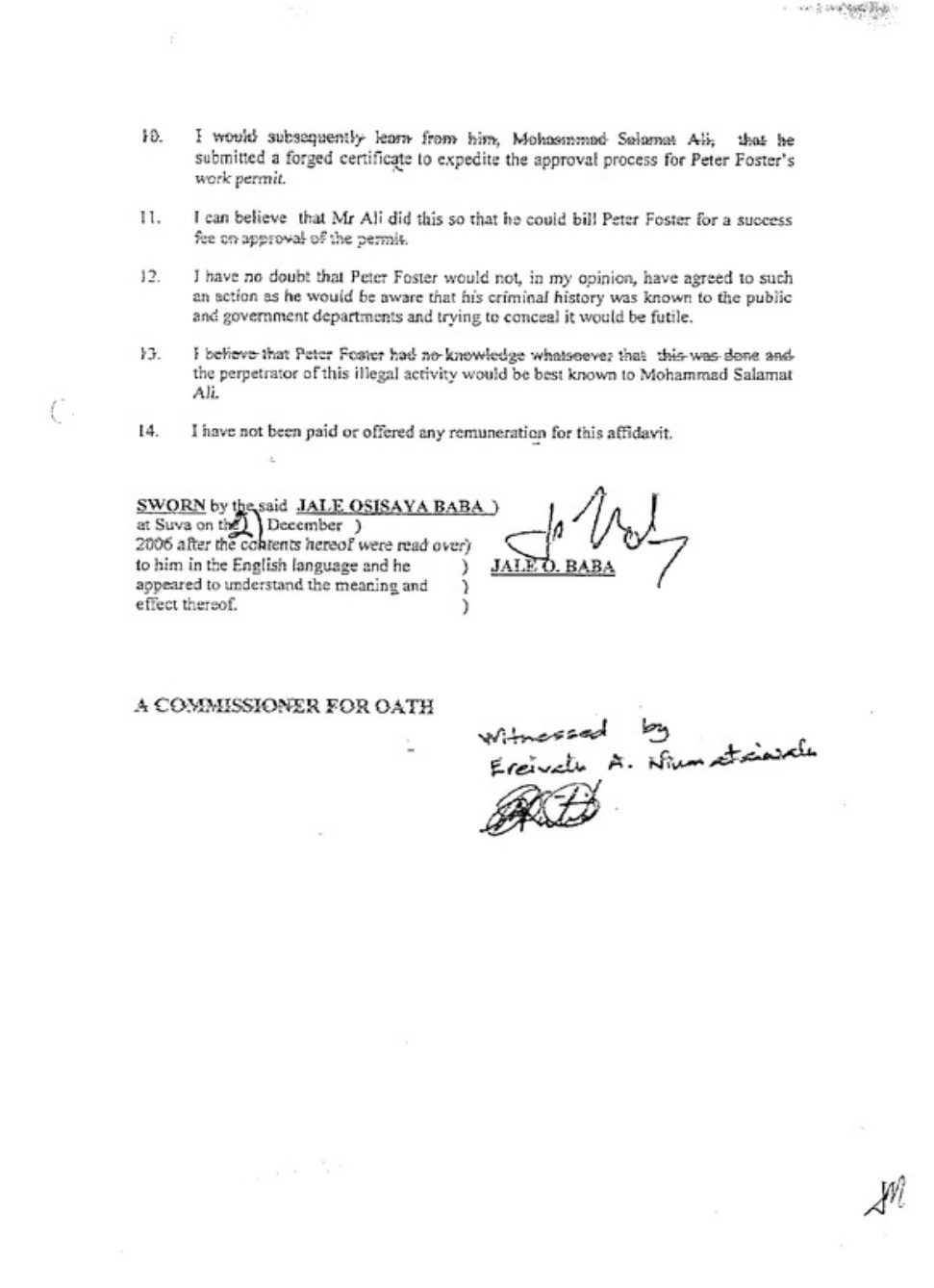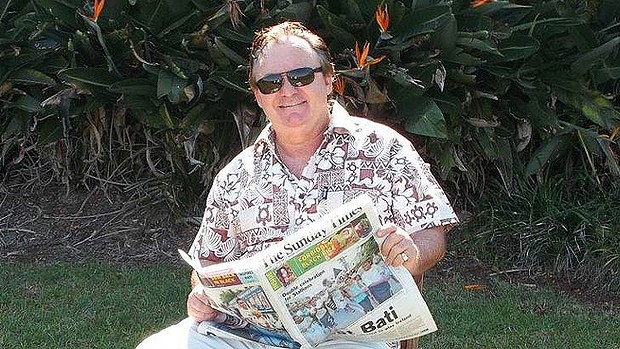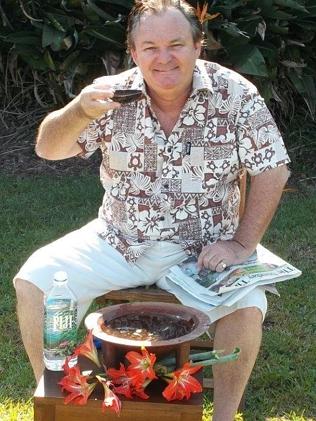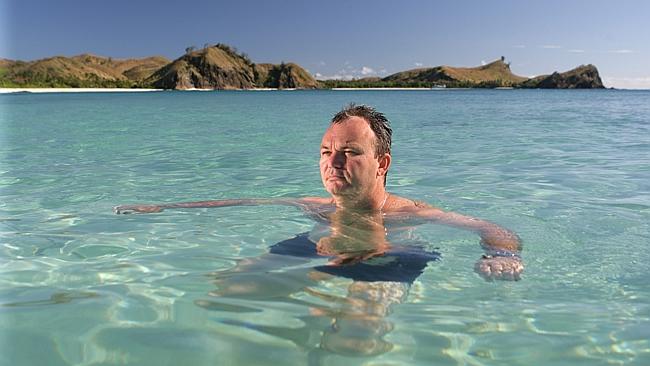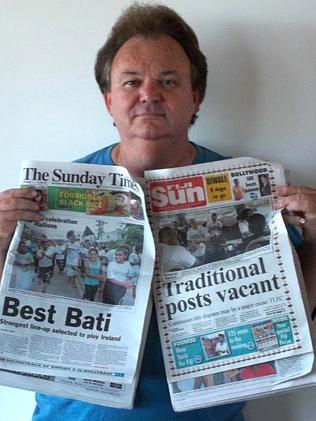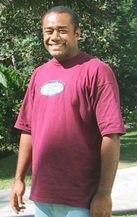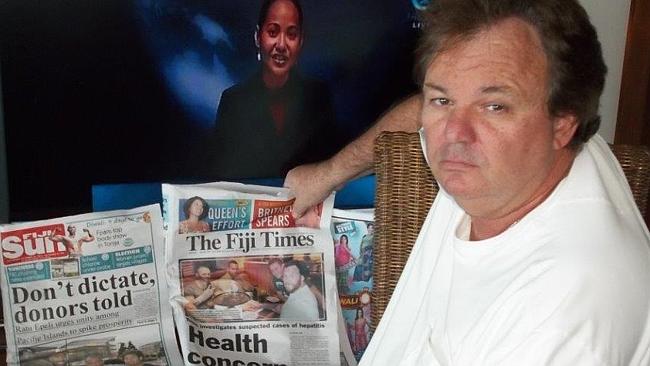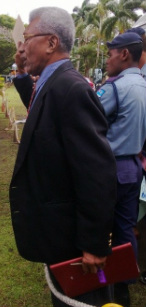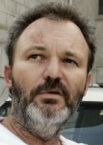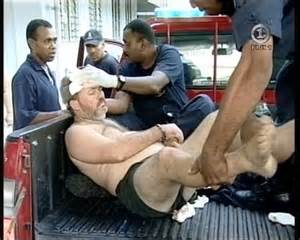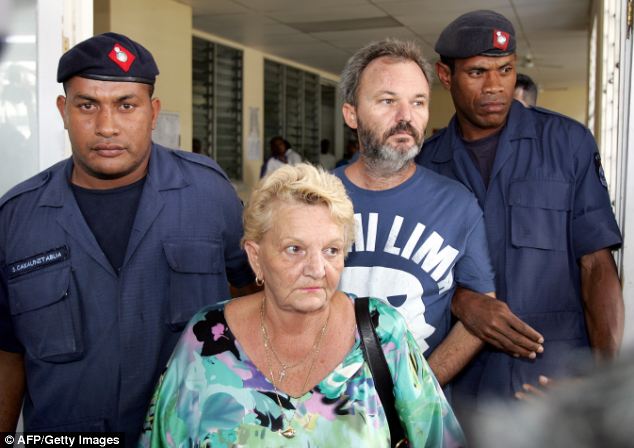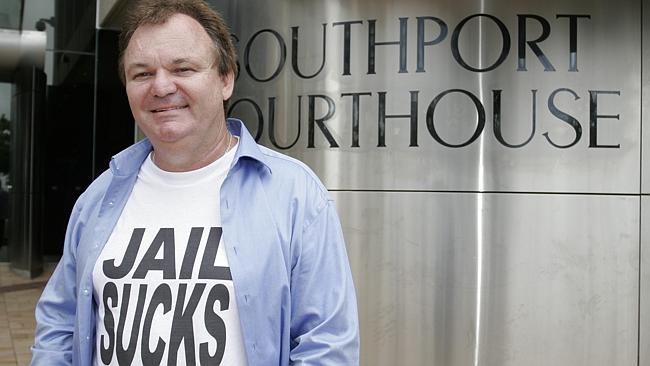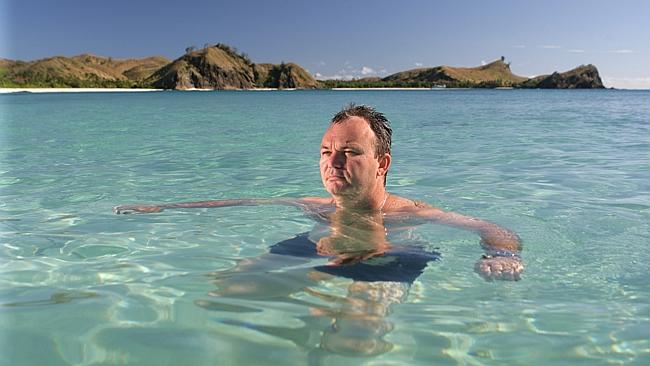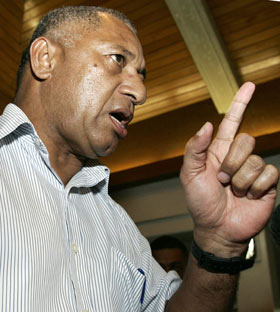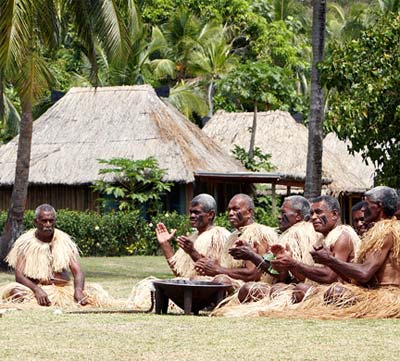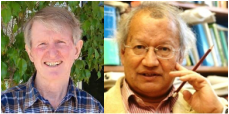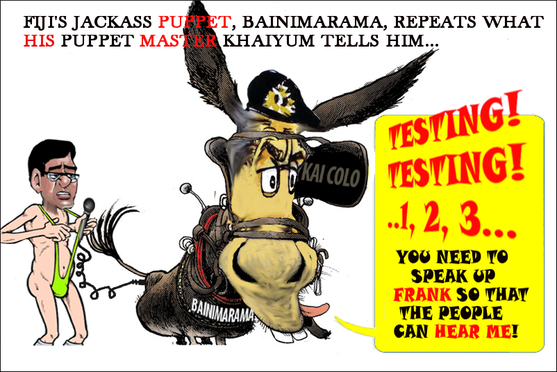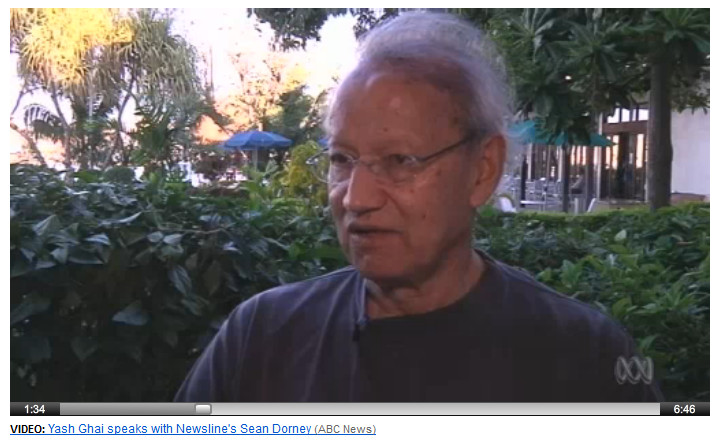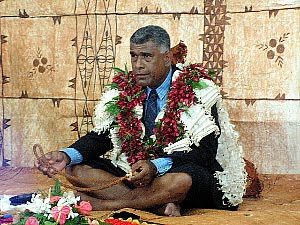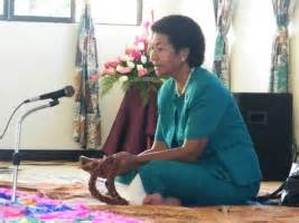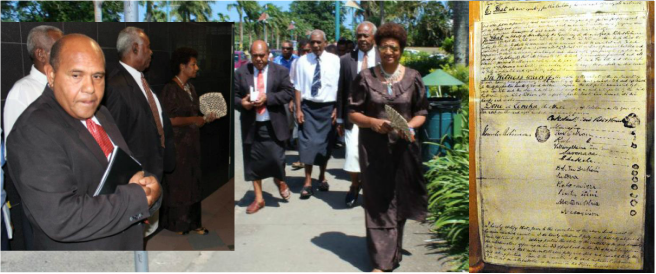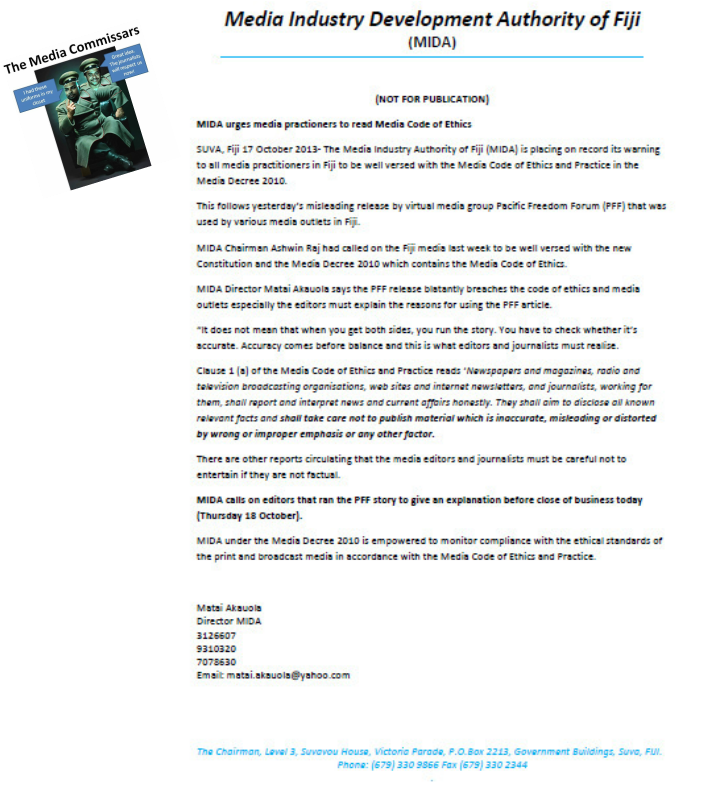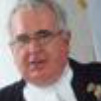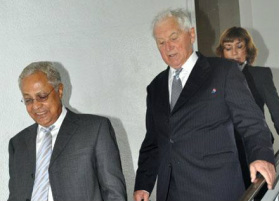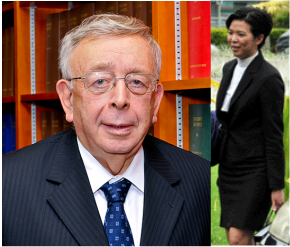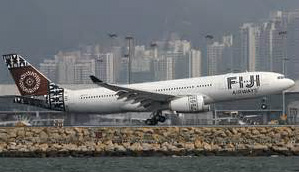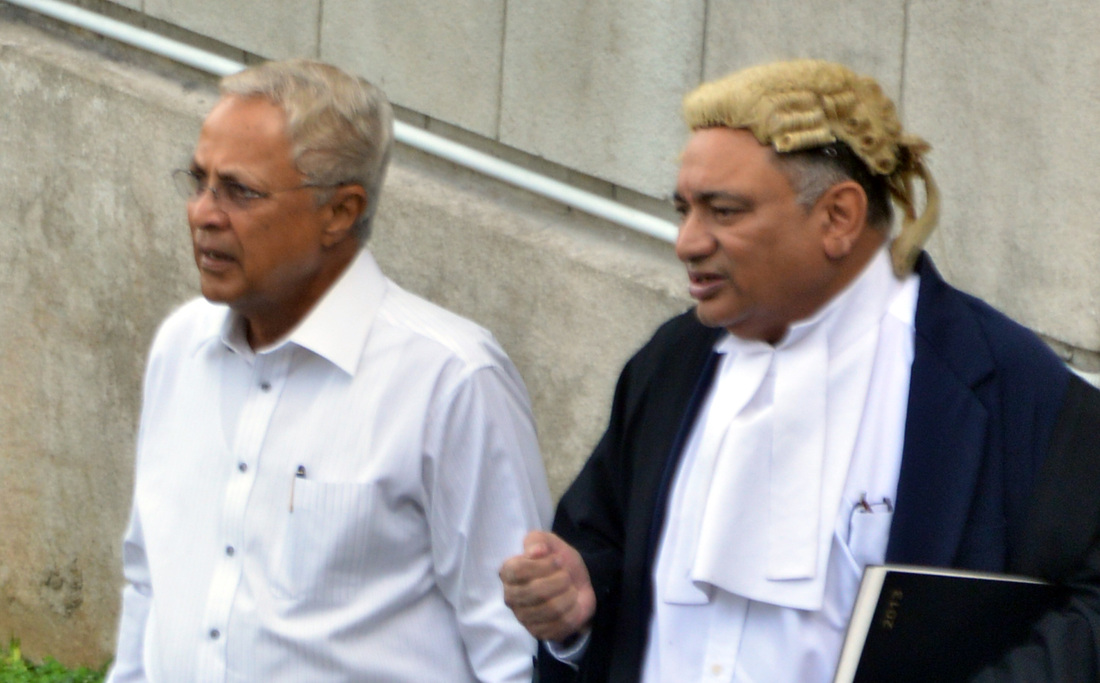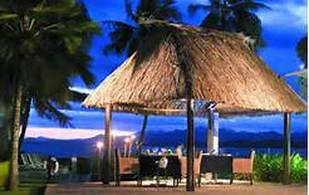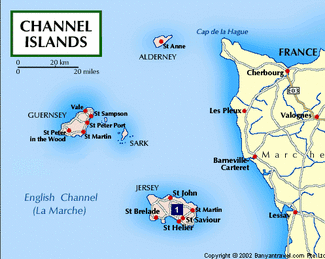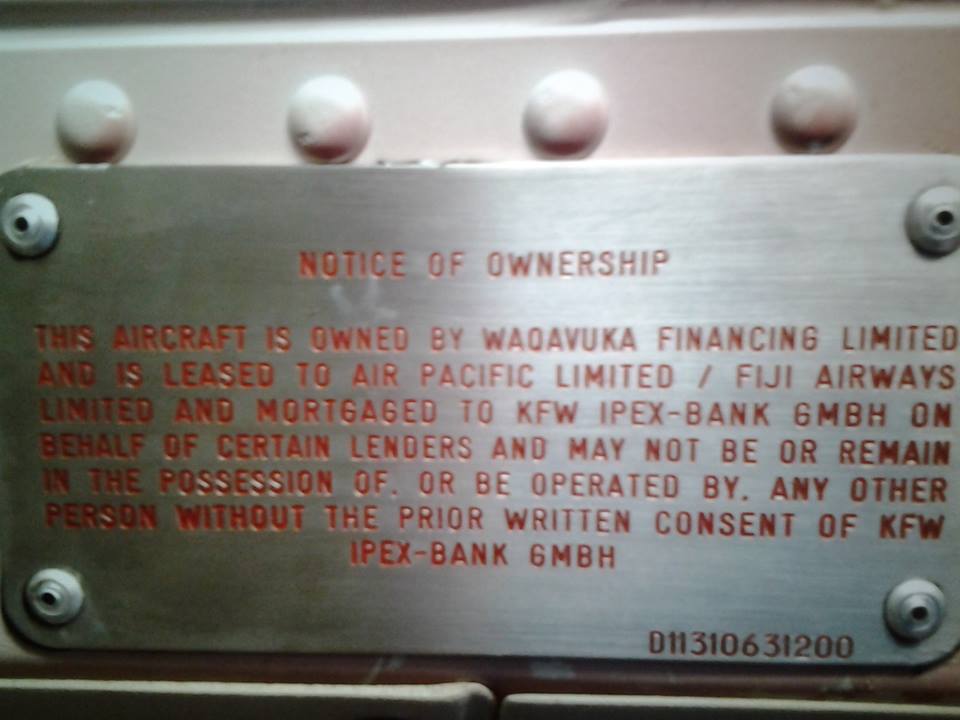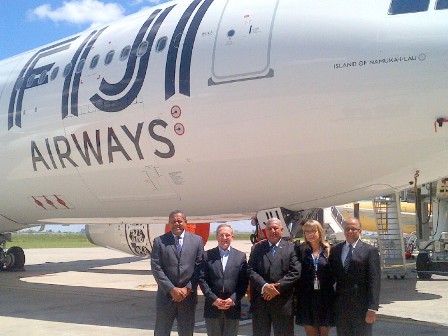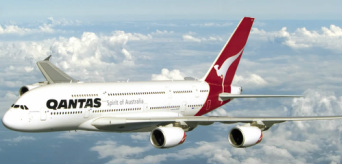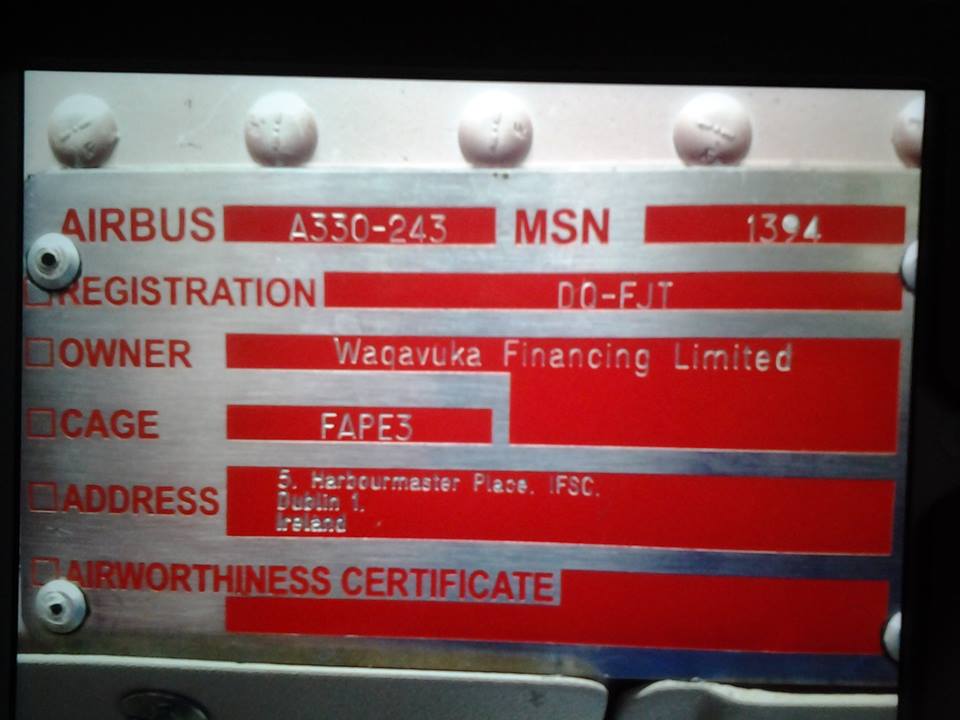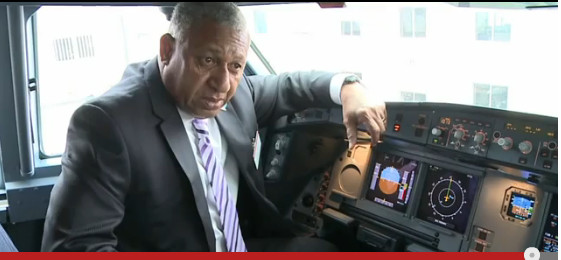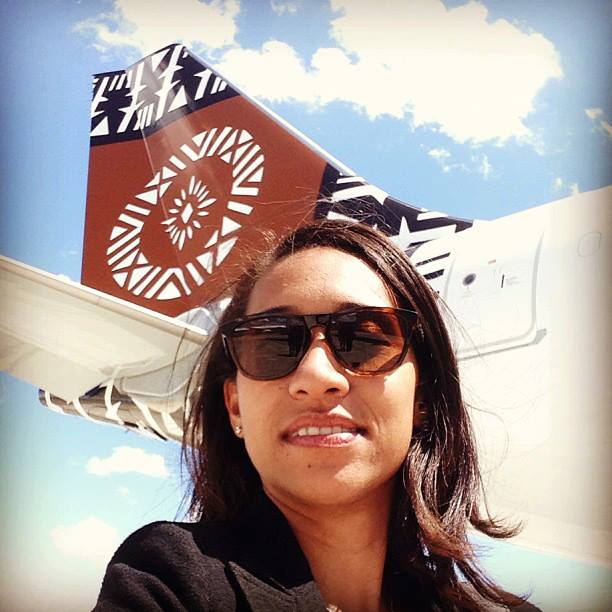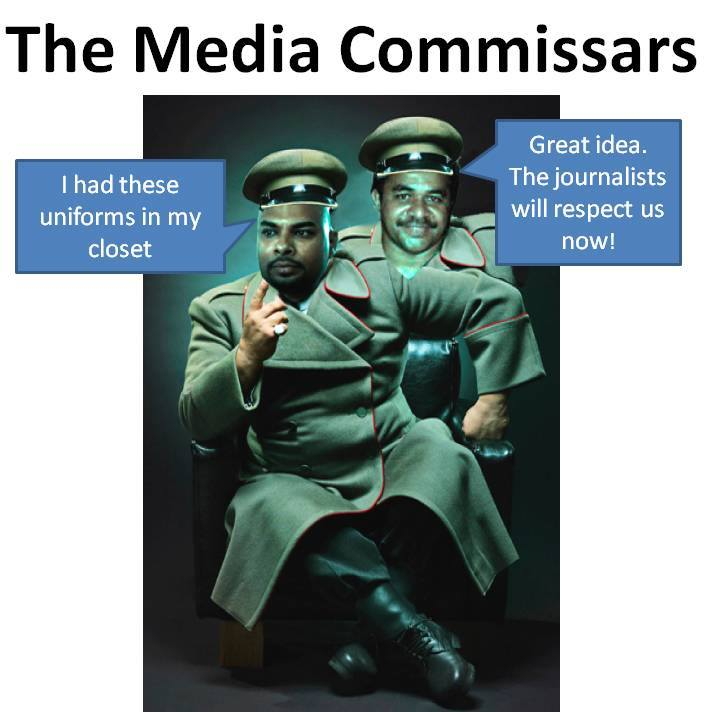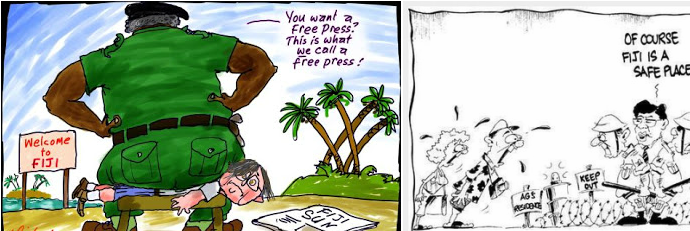| Foster tells Victor Lal his side of story: "Commander Frank Bainimarama was at this time the acting President, having only removed the Qarase government a week earlier. He asked me if I had thought about what Colonel Mara said and if I was prepared to assist him expose the corruption that was suffocating Fiji. We spoke for about 10 minutes. He was very polite and had a gentle manner on the telephone. He was prepared to listen and fully understood my fears for my safety and the safety of my family if I became involved and was exposed. It is hard to explain why, but something told me he was genuine. He was sincere in his desire to demonstrate to the world just how crooked the Qarase government had been. I knew it, he knew it, we just needed others to know it. I decided to take one step and see how it panned out. In may respects I was motivated by my own self interest as I wanted to clear my name, and I wanted to know why [Mohammad Salamat] Ali had lied about me altering my work permit. To do that I needed to speak to Jale Baba. The following day I arranged under the instructions and guidance of Fiji Military Intelligence to covertly video record Jale Baba who was still the high profile National Director and Campaign Manager of the deposed SDL party. Video camera hidden in cabinet at far left In my room at JJ's Hotel technicians from the military installed a video camera in a television cabinet, which they could monitor from the adjoining room. I invited Jale up to my room that evening to discuss the coup and get an update as to what was happening with Qarase and the ministers. Jale arrived at about 9 p.m. after visiting with several former ministers of the government and speaking on the telephone with deposed Prime Minister Qarase. We sat in front of the TV cabinet and I poured wine liberally and we ate leisurely from an elaborate cheese platter. Jale was very talkative and although exhausted from the events of the military takeover, seemed in no hurry to leave. In more stunning revelations than I could ever hope for, he firstly admits that I was not responsible for falsifying the work permit, which was the offence with which I had been charged and granted bail. Jale admitted his partner, Mohammad Salamat Ali, forged the criminal history without my knowledge and that Ali had told him to lie in a Police statement in an attempt to frame me. Jale would eventually sign an affidavit confirming that he lied and I was innocent of the allegations. (See copy of the alleged affidavit) He was not apologetic. He was not in the least bit sorry for his actions. The fact that I could have gone to jail meant nothing to him. It was just business. Dirty business. That's the way the government did things. You were either with them, or against them. When I chose not to pay the kickbacks, I was against them, and the assistance and guidance I gave them during the election meant nothing. "I could have gone to jail," I said. "So what, we all could go to jail. Qarase, me, Navi, the bloody cabinet, we all could go to jail," he replied. He then went on and said when speaking of the Qarase cabinet, "all of them are corrupt". When I asked about Qarase, he said, "He's the biggest crook of the lot." He explained that is why they were chosen to be ministers, because they were corrupt. They were selected solely for their ability to be dishonest. After all, Navi was the Chairman of the SDL Candidate Selection Committee. This was stunning evidence to obtain as this was the face of the government speaking, and it was all captured on video. He was not only Prime Minister Qarase's right hand man, but he was his official spokesman, and was the national director of the party and the campaign manager. Next to Navi, and the Attorney General Bale, no one else was more influential or a bigger insider. Later that evening Lieutenant Patti (Ereivati) and other military personnel sat in my room and watched the video be played back. It was dynamite. They knew that I was the key to getting all the evidence against Qarase and his cronies. The following morning I spoke again to the Commander on the telephone. He congratulated me on capturing Jale Baba on DVD and thanked me for being involved. I said that I was prepared to continue to assist him, however I was on bail to the hotel and couldn't leave the premises. If I was to try and covertly tape up the other members of the former Qarase government I needed to be able to move around and meet them in their own environment. He said to leave it to him and he would get back to me. That afternoon representatives of the military went and saw the Magistrate in chambers and advised him that they were going to take me into their custody. Operation Free Fiji was born and I was its main operative. That evening I was escorted on the three hour drive from Suva back to my home at Denarau, near Nadi, by a mini van with six police officers and two carloads of soldiers. I was told that I would have eight armed soldiers protecting me 24/7. Lieutenant Patti became my Team Leader in this covert operation and the liaison between the Commander and me and would stay by my side for the next four weeks. He positioned two heavily armed snipers outside my house day and night. I would be accompanied by soldiers every time I stepped outside the house. Once home I was able to telephone Navi and tell him that my lawyer had my bail varied to allow me to return to Denarau. He was delighted and we agreed to meet the next day for lunch. Hilton Hotel at Denarau We chose the Hilton Hotel at Denarau for our luncheon. Lieutenant Patti went and saw the manager of the hotel and arranged for his soldiers to dress in hotel security guard uniforms. This in itself posed problems. The security guards were mostly Indians, and were of a tall slim build. The Fijian soldiers were barrel chested with arms like coconut trunks. To see them try and squeeze into these tiny uniforms was one of the lighter moments of a very intense and stressful time. Navi and I sat at the top left hand table near the pool. Two soldiers dressed as civilians were at the table nearest to us. Four others were disguised as hotel security. Navi and I would spend the next five days together, having every lunch and dinner. I had a mini DVD camera sewn into a man handbag which I carried. Lieutenant Patti created a panic signal in the event that Navi twigged that I was carrying a video recorder and microphone. If I was in trouble I was to accidentally knock the wine bottle over and hit the floor. That would be the signal for the soldiers to swing into action and take Navi down. I almost trembled every time I poured the wine, fearing I would accidentally drop it and cause all hell to break loose. During those days we talked about everything. Navi is a massive drinker. Most probably an alcoholic. Lunch would turn into dinner and I would rarely get home before midnight. I would be up at 5 a.m. and start transcribing the tapes with two other military officers. At noon, I would meet Navi again and repeat the whole process. Navi confirmed in these covertly video recordings that Prime Minister Qarase was deeply dishonest and corrupt, as were all his ministers. The election in 2001 was rigged against Dr Baba's New Labour Unity Party because they knew that a coalition would be formed with the Labour party to create government. Dr Baba had won his seat in Suva, Navi told me, but they had fixed the result against him. Navi also confirmed that the 2006 elections were rigged with 10 seats targeted. On the video recording, I act surprised at such a crude attempt to rort the electoral system. "If I did it, I'd get 10 years prison," I said. "Why didn't anyone investigate it?" Navi replied: "Because they're all into it - all of them". I asked why the police didn't stop it. He replied it was the police who did it for them. He also confirmed that Qarase had millions of dollars stashed in Australia and New Zealand bank accounts and with the Habib Bank in Pakistan. His accusations of corruption included ministers from the Methodist church and the Great Council of Chiefs as well as virtually every minister in Qarase's government. He explained that is why they were chosen by him in his capacity of chairman of the SDL candidate selection committee in the first place, because they were all corruptible. Navi was dismissive of Qarase's ministers, as demonstrated by this extract from one transcript. FOSTER Are there any of the ministers, if we put a company together with you involved, are there any one of them we can actually bring on board to give us credibility? NAISORO I have more credibility than the whole bunch of them together. I never went through the same thing. These people are all unemployable. FOSTER You think they are all finished? NAISORO Finished. When I asked if he (Naisoro) thought any of the deposed ministers were going to get into another government, he said: "I wouldn't use them, they are idiots, they are broke." FOSTER Why? NAISORO They are all broke, they will be headaches, they are imbeciles. FOSTER So why did you make them ministers if they are imbeciles? NAISORO Because they are imbeciles and you can control them. FOSTER So you can control them so you make them ministers? NAISORO Yes. FOSTER Why? NAISORO Because you can control them. Most interestingly, Navi said the coup by the Commander was the best thing that could happen to Fiji. I asked why, and he explained, "He's an honest guy. Most men are too stupid to be corrupt, he's just too honest. He'll be good for Fiji, you need a cyclone to come along every so often and clear away the rubbish. This is it, cyclone Frank," he laughed. | Military's covert recording showing Navitalai Naisoro allegedly boasting about how they rigged the election. Peter Foster is audible. Speaking of Qarase and the government, Navi said, "They went too far. Too greedy. Didn't care about the people. They stopped listening to what I was trying to tell them, they forgot who put them there. " This was a staggering admission by a man who had been the power behind the throne for more than 20 years. Navi knew when the game was almost up. After a few days Lieutenant Patti and I flew to Suva to meet the Commander to discuss face to face what I had obtained. We arrived at his home about 2 p.m., just as five 4WD vehicles full of heavily armed soldiers pulled up. The commander was buried amongst them. He had travelled by road back from Nadi to Suva, having met his daughter at the airport after she flew in from New Zealand for Christmas. I counted more than 20 armed soldiers around him. The Commander guided me into a very pleasant room which may have been a breakfast room. To my surprise, we were alone. No bodyguards followed us. It was just the commander and me sitting on a lounge chatting like old friends. I had been told he had allocated 15 minutes for our meeting. We would talk for closer to 45 minutes. The Commander was the same, more of a kindly grandfather than a military man to be feared. He was keen to listen. I told him of what I had obtained from Navi and gave him a copy of the DVD and the transcript. I said to him, "You were right all along. The world needs to know the truth. You have to get the message out so CNN, BBC, ABC, people all around the world know what you did was for the right reasons, that this was the coup Fiji needed to have." The Commander asked me to suggest how we should release the information to the media. I told him that I had spoken to my friend, Matt Condon at the Brisbane Courier-Mail newspaper and he proposed that it should be released over several days, not all at once. I said I should first go and see more former ministers, and if possible, Qarase himself. Then once I had covertly taped everyone possible, then he could release it. We agreed that New Years Day would be best. The Commander said he had viewed the Jale Baba DVD recording which confirmed what I had stated to Police, that I was not guilty of falsifying my work permit or and that he I had been set - up by Mohammad Salamat Ali. The Commander said that the military appointed Police Commissioner had agreed to ask the DPP for a nollie prosequi to be entered into, which effectively means I had no case to answer and the charges against me are withdrawn. This never happened despite his promise. This is what I want resolved now." Fijileaks Editor: We could not get comments from Jale Baba and others mentioned in Foster's account |
Regime turncoat Jale Baba "lied" to police about Foster and later retracted his statement
8 Comments
The Conman’s August Curse "In our case it was purely a civil society body. They can have it. They don’t need to have it. Just like any other group can form an association. And that provision about the Council of Chiefs appears in the chapter which is called clearly ‘Civil Society’. Because they want civil society to play a role in public affairs. That’s what democracy is about. And it was clearly a misrepresentation. They must know that the Council had none of the functions which were vested in it under previous constitutions. It’s not a public authority, it’s not mandatory, it has no jurisdiction. And to say that, ‘Oh, we have revived this and so on.’ Well it’s unfair." |
| An expert whose draft for Fiji's Constitution was scrapped by the interim government says he doubts interim Prime Minister Frank Bainimarama has read his government's replacement version. In January, the Fijian government scrapped the draft constitution drawn up by an independent commission led by Professor Yash Ghai. A replacement version was signed into law in September. Professor Ghai has told Australia Network's Newsline program Commodore Bainimarama's comparisons between the commission's draft and the final product have been flawed. "I think most dictators have a great capacity for self deception and he may be suffering from that," he said. "I doubt if he has read the Constitution - he just repeats what his Attorney General tells him to say, and those are his words." "He has made various statements about our Constitution which are inaccurate in his criticism [and] he has said many things in praise of their Constitution which are inaccurate." The new document will replace the 1997 constitution that was set aside by the military regime four years ago. It includes reforms to the electoral system, a clause on free speech and a Bill of Rights. Professor Ghai says while parts of the final version borrow from his work, they are undermined by other alterations or omissions. "For example, they have taken a fair bit from our Bill of Rights, but they have an over-arching sort of provision whereby it'd be very easy for Parliament to disregard a human right, whereas in our case there was an article dealing with limitations," he said. "The whole scheme of a Bill of Rights can come to nought if they declare an emergency [and] there are no safeguards that we had built into the scheme for declaring an emergency. "So now they have a carte blanche basically to, to de-supply or set aside the whole Bill of Rights." Electoral system Professor Ghai says he's also disappointed with the changes to the electoral system from the draft version. Under the new system, individual regional constituencies have been abolished in favour of one national constituency - a change which the government says will force politicians to adopt a national focus. Professor Ghai says the changes favour larger parties because they have to secure five per cent of the vote. He says the use of an 'Open List' system - where the number of candidates elected for each party is based on the party's overall vote - also adds to the complexity. "In an Open System...you can cross out the ordering of the party and change the order - which is a good thing, it gives people, the voters the power not to have to stick to the list drawn by the party," he said. "Then they can add other names too - they can put somebody down there who is not even on the list. "It means that the ballot paper could be very long, huge - I know that people in Fiji are used to quite complex electoral systems but this one is going to be very hard to cope with for most people." Rights groups have raised concerns about the constitution's inclusion of a clause giving immunity to those behind the 2006 coup. Professor Ghai says clauses on immunity were included in his draft because of pressure from the attorney-general and the prime minister. He says the original version would have forced those seeking immunity to apologise. "The immunity we gave, requires a prior oath by the people who seek its benefit to apologise for what they did, to say they would never, ever again do things like this, only then does the immunity come. "Many, many people told us that: 'If they apologise, if they show that they are sorry and acknowledge that they have broken somebody's sacred rules, we will of course give them immunity'. "But they wanted some recognition on the part of these people that they did something wrong and they would never, ever again do something like that." Professor Ghai says there are also concerns with the difficulty in changing the constitution, and that several Decrees by the current government will remain in force after the elections. He says he remains hopeful that Fiji may still be forced by pressure from the international community to adopt his version of the constitution. Source: Australia Network News |
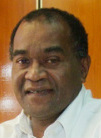 Nawaikula
Nawaikula Secretary, Niko Nawaikula, Fiji Native Tribe Congress responds to critics
"I don't normally reply on blogs because comments are faceless, very personal & without principled arguments, vulgar, not constructive and not inclusive. But, to answer Luveiviti query:
The argument put forward is that the statement by RTK &TC will infringe on the individual right of native Fijians. Not so.
Group right is not Individual right & there is a mile of difference.
Group right is about the identity of the group manifested in its unique language, cultural knowledge, custom & the need to maintain & protect it.
An individual acquires or is part of the group entitled to those rights by descent, by practice and by the individuals desire to identify with the group to speak its language and respect its culture & traditions. Self identification really.
But it remains always a matter of choice for the individual to be part of the group by respecting its culture & values. If the individual disagrees he has every right to, which must be respected. The term that was used for that was "tu galala" referring to those who opted out.
At the same time you are not part of the group as of right. You have to participate fulfilling your cultural obligation. It is the reason why there is a provision in the Native Lands act to delete names from VKB for that reason.
So what is the implication of the statement by RTK & TC ? They are simply restating the usual and obvious that being part of the group is a matter of choice. Except that those who choose not to should depart with dignity without dismantling the institutions and things sacrosanct that those who remain need.
Niko."
"I don't normally reply on blogs because comments are faceless, very personal & without principled arguments, vulgar, not constructive and not inclusive. But, to answer Luveiviti query:
The argument put forward is that the statement by RTK &TC will infringe on the individual right of native Fijians. Not so.
Group right is not Individual right & there is a mile of difference.
Group right is about the identity of the group manifested in its unique language, cultural knowledge, custom & the need to maintain & protect it.
An individual acquires or is part of the group entitled to those rights by descent, by practice and by the individuals desire to identify with the group to speak its language and respect its culture & traditions. Self identification really.
But it remains always a matter of choice for the individual to be part of the group by respecting its culture & values. If the individual disagrees he has every right to, which must be respected. The term that was used for that was "tu galala" referring to those who opted out.
At the same time you are not part of the group as of right. You have to participate fulfilling your cultural obligation. It is the reason why there is a provision in the Native Lands act to delete names from VKB for that reason.
So what is the implication of the statement by RTK & TC ? They are simply restating the usual and obvious that being part of the group is a matter of choice. Except that those who choose not to should depart with dignity without dismantling the institutions and things sacrosanct that those who remain need.
Niko."
| The International Federation of Journalists (IFJ) joins with Pacific Freedom Forum (PFF), the regional media monitoring group, in being deeply concerned that requirements proposed by Fiji’s media authority for foreign media trainers, independent journalists and communications workers to register with the authority are a backward step at a time when all sections of the media should be encouraged to report freely in the lead-up to Fiji’s September 2014 general election. The new chairman of the Media Industry Development Authority (MIDA), academic Ashwin Raj, announced on October 8 that MIDA was looking to extend the registration requirements applied to foreign media trainers and organisations. This media training includes issues such as media freedom, democracy, human rights and election reporting. Raj had initially called for a more open dialogue among Fiji’s media about the the decree under which they work and he talked about helping the media promote a “culture of deep democracy”, including a rejection of self-censorship. But Raj also indicated there would be a wider interpretation of the authority’s powers, extending them to foreign media trainers, organisations that produce their own media and to freelance journalists working in Fiji. Raj said any person or organisations wanting to train or work with the local media must first seek approval from MIDA. PFF chair Titi Gabi of Papua New Guinea said: “We are always ready to engage with the Fijian media authority and welcome the call for honest dialogue, but the requirement to register for a whole new section of media workers could discourage the very thing Fiji’s media needs at the moment. The media in Fiji need all the training and moral support they can get as the country prepares for its first general election in eight years in September 2014 under a new Constitution,” Gabi said. | PFF co-Chair Monica Miller of American Samoa said: “There is no need for another layer of scrutiny in what is already a tightly regulated media environment. While the requirement to register may seem logical for Fiji’s media authority, any extra step in this direction is one more limitation on freedom of expression in a country that is in democratic transition and needs as much openness as possible. IFJ Asia-Pacific said: “The Media Industry Development Authority has a vital role to play at this important moment in Fiji’s history. The encouragement of open dialogue and the rejection of self-censorship are most welcome. But the suggestion of applying additional restraint on some sections of the media at the precise time when openness and transparency should be encouraged is wrong. We hope MIDA will reconsider its position.” Both the IFJ and the PFF are fully prepared to work with MIDA on developing a robust, ethical and free media in Fiji and would welcome the opportunity to discuss ways to cooperatively bring this about. |
MIDA stresses it’s not restricting foreign journalists from coming to Fiji
The Media Industry Development Authority or MIDA has today stressed that it is not restricting any foreign journalists from coming to Fiji.
While reacting strongly to a statement from the Pacific Freedom Forum, Authority Director, Matai Akauola said the misleading statement is far from the truth. Akauola said further steps are now being taken but they want the person based in Fiji to declare his interest as the Forum’s statement is misleading. The Pacific Freedom Forum Coordinator in Fiji said they will comment after they see the statement. Source: Fijivillage News
The Media Industry Development Authority or MIDA has today stressed that it is not restricting any foreign journalists from coming to Fiji.
While reacting strongly to a statement from the Pacific Freedom Forum, Authority Director, Matai Akauola said the misleading statement is far from the truth. Akauola said further steps are now being taken but they want the person based in Fiji to declare his interest as the Forum’s statement is misleading. The Pacific Freedom Forum Coordinator in Fiji said they will comment after they see the statement. Source: Fijivillage News
editor@fijileaks.com
ARCHIVES
September 2020
August 2020
July 2020
June 2020
December 2018
November 2018
October 2018
January 2018
December 2017
November 2017
October 2017
September 2017
August 2017
July 2017
June 2017
May 2017
April 2017
March 2017
February 2017
January 2017
December 2016
November 2016
October 2016
September 2016
August 2016
July 2016
June 2016
May 2016
April 2016
March 2016
February 2016
January 2016
December 2015
November 2015
October 2015
September 2015
August 2015
July 2015
June 2015
May 2015
April 2015
March 2015
February 2015
January 2015
December 2014
November 2014
October 2014
September 2014
August 2014
July 2014
June 2014
May 2014
April 2014
March 2014
February 2014
January 2014
December 2013
November 2013
October 2013
September 2013
August 2013
July 2013
June 2013
May 2013
April 2013
March 2013
February 2013
January 2013
December 2012
October 2012
September 2012
